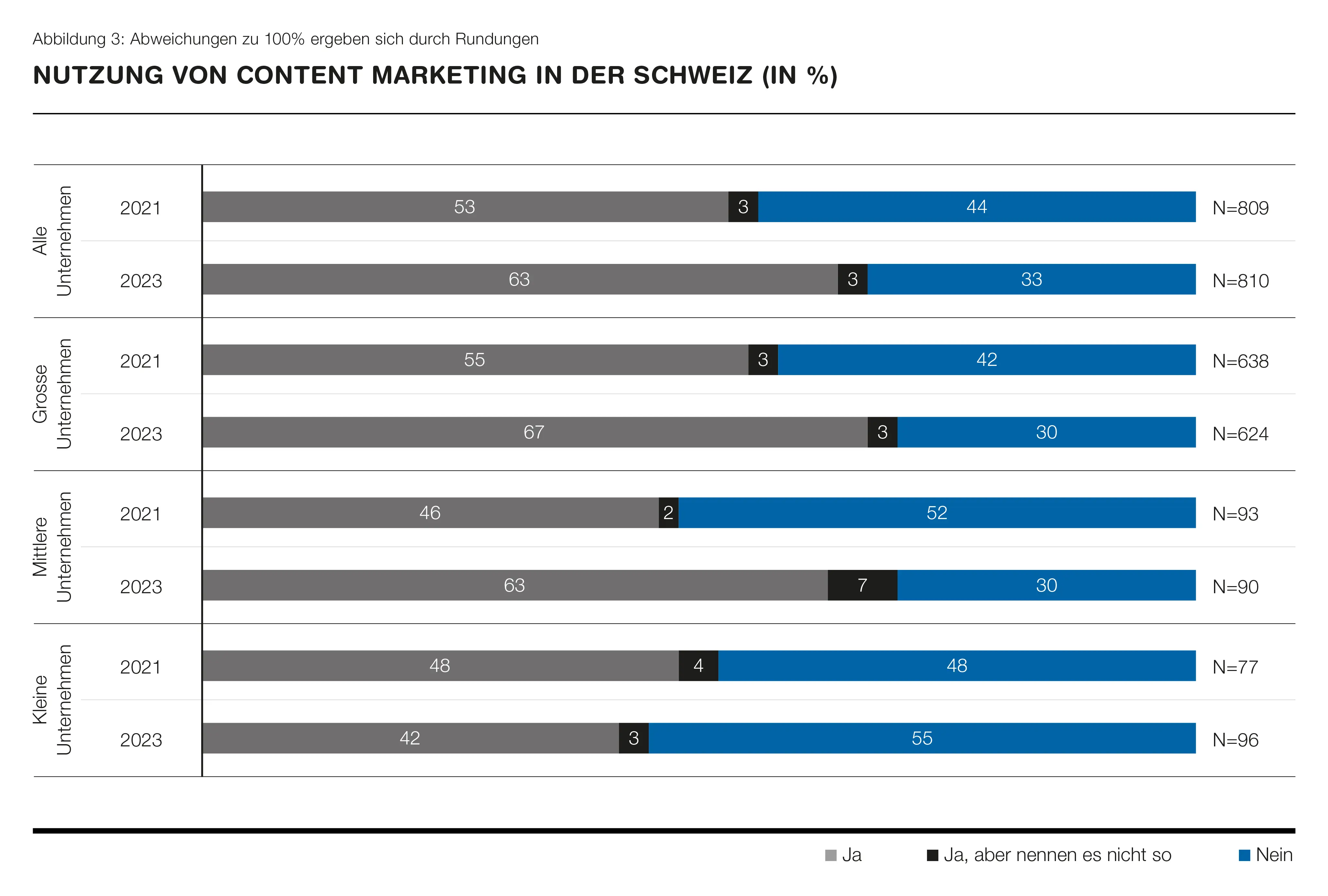Swiss Companies Conduct Increasingly Professional Content Marketing
Nearly two-thirds of all Swiss companies rely on content marketing as part of their marketing communications, according to the 2023 Content Marketing Study conducted by ZHAW. However, the growing marketing activities by competitors also mean that companies must increase their efforts to create content that appeals to their target audiences. This presents a challenge for many of them.
Content marketing is growing in popularity with Swiss companies. This is one of the main findings of the 2023 Content Marketing Study by the Institute of Marketing Management at the ZHAW School of Management and Law. For the third time, the study has examined the prevalence and application of content marketing in Switzerland. To obtain the data, around 680 Swiss companies of all sizes were surveyed in December 2022. Funding was provided by watson and AZ Konzept.
Two-thirds of all companies use content marketing
"The results of our study clearly show the stellar rise of content marketing," says study author Adis Merdzanovic from the Institute of Marketing Management at the ZHAW School of Management and Law. Two years ago, just over half of all companies reported using content marketing as part of their marketing activities. In the current study, this figure has risen to 66 percent of all companies surveyed. Even companies that do not use content marketing intend to introduce it in the near future. A look at their budgets shows how important content marketing has become. Already today, an average of 42 percent of the total marketing budget is spent on content marketing.
The use of content marketing in Switzerland
In the survey, 63% of the companies rate content marketing as effective. It is interesting to note that companies that have been using content marketing for more than three years consider it to be particularly effective. On the other hand, companies that introduced content marketing only recently rate its effectiveness more cautiously. "This shows that content marketing is a strategic rather than a purely operational approach," says Merdzanovic. "The successes only materialize in the medium term."
In general, the study confirms a definite increase in the professionalism of companies that employ content marketing. This is not surprising in view of the increased popularity of content marketing, which puts added competitive pressure on companies. The content they produce must not only be better, but it must also be distributed more efficiently. Most companies today have content marketing strategies with defined target groups and clearly identified key topics. Responsibilities are defined in writing, processes are well-structured, and content management tools are used to help with planning and distributing content.
The problem is often a lack of skills
Challenges arise in particular in the area of content creation, mainly because the relevant competencies have not yet been developed in the companies. Most of the companies surveyed expressed a clear need to catch up in this regard, which some are remedying by relying on external services. "Some companies are struggling to reach the target group with relevant and high-quality content," according to Adis Merdzanovic. In this respect, data can help, especially if it allows conclusions to be drawn about the actions, interests, and preferences of customers. In fact, most companies use their data to gain a better understanding of their customers. In addition, data is used to critically review created content and thus find out which content formats or topics resonate with the target audience and what effect they have. “Here, however, companies are still at the very beginning. The potential of the various data has not yet been fully exploited,” concludes Adis Merdzanovic.
Content marketing formats
In terms of content formats, it is clear that companies are using the full range of options: from simple articles on the company website and social media posts to printed or digitally delivered magazines. It is interesting to note that while many companies use generic or easy-to-produce formats, formats that require more effort or have a clearly definable target group are rated as much more efficient.
Contact
Dr. Adis Merdzanovic, Institute of Marketing Management, ZHAW School of Management and Law, phone: +41 (0) 58 934 46 74, email: adis.merdzanovic@zhaw.ch
Valerie Hosp, Communications, ZHAW School of Management and Law,
phone: +41 (0)58 934 40 68, email valerie.hosp@zhaw.ch
